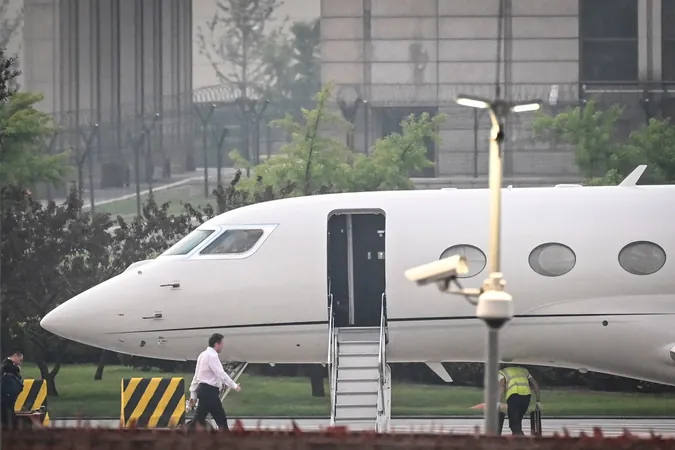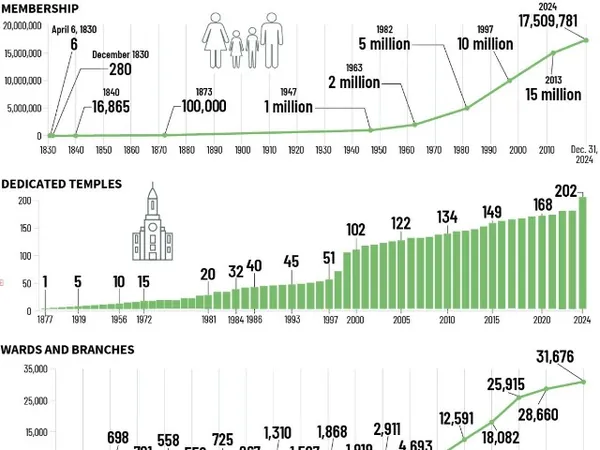
Taylor Swift and Elon Musk Can Now Keep Their Private Flights Under Wraps Thanks to New FAA Regulations
2025-03-31
Author: Ming
Rich individuals often seek to capitalize on their wealth in ways that help them escape scrutiny, and the latest development from the Federal Aviation Administration (FAA) is a perfect illustration of this trend. A recently unveiled rule allows private jet owners to obscure their registration details, making it notably more difficult to trace their movements.
This new policy enables aircraft owners to request their ownership details—including names and addresses—be kept confidential and inaccessible to the public through FAA services. Owners can utilize the Civil Aviation Registry Electronic Services (CARES) to initiate this request. The FAA is also considering a broader move to make personal information about private aircraft owners private by default, eliminating the need for individual requests.
This significant shift arises from the FAA Reauthorization Act of 2024, which mandates the agency to devise a system that ensures the anonymity of private jet owners over a two-year period. Signed by President Joe Biden in May 2024, the Act received support from both parties and primarily aimed to bolster the FAA’s capabilities and advance aviation infrastructure.
While this update provides much-needed privacy for jet-setting billionaires as they whisk away to luxurious destinations like the Galapagos Islands, it simultaneously presents a considerable challenge for those who monitor celebrity behaviors and environmental impacts associated with private jet emissions.
The scrutiny surrounding celebrities and their private flights has intensified, particularly following Elon Musk's controversial move to suspend the Twitter account @ElonJet, which tracked his private jet flights. Musk became quite agitated about the public knowledge of his movements, even offering the account's operator $5,000 to cease their activity—a proposition that was ultimately turned down. His exaggerated comment, claiming that sharing his flight details could lead to “assassination coordinates,” added some levity to the serious topic.
Another high-profile figure likely to benefit from these regulations is pop icon Taylor Swift, who has also faced backlash regarding her private jet usage. She took legal action against a flight tracker that logged her travels, reflecting a growing concern among celebrities about their exposure in the age of digital tracking.
Interestingly, a 2024 study published in Nature shed light on the soaring utilization of private jets by the wealthy. The findings revealed that a significant proportion of private flights—about 50%—were under 500 kilometers (around 300 miles). Between 2019 and 2023, emissions from private jet travel surged by 46%. A report from The Guardian further corroborated this trend, revealing that private jets owned by a mere 200 affluent individuals were responsible for approximately 44,739 flights in 2022—generating more carbon emissions than 40,000 average British citizens over a full year.
It's curious to consider why these high-fliers would prefer to keep their travel habits under wraps, especially in light of the growing public concern regarding climate change and the environmental impact of luxury travel. With these new FAA rules in place, the rich can now jet off to their weekend getaways without a trace—soaring even higher above public accountability.




 Brasil (PT)
Brasil (PT)
 Canada (EN)
Canada (EN)
 Chile (ES)
Chile (ES)
 Česko (CS)
Česko (CS)
 대한민국 (KO)
대한민국 (KO)
 España (ES)
España (ES)
 France (FR)
France (FR)
 Hong Kong (EN)
Hong Kong (EN)
 Italia (IT)
Italia (IT)
 日本 (JA)
日本 (JA)
 Magyarország (HU)
Magyarország (HU)
 Norge (NO)
Norge (NO)
 Polska (PL)
Polska (PL)
 Schweiz (DE)
Schweiz (DE)
 Singapore (EN)
Singapore (EN)
 Sverige (SV)
Sverige (SV)
 Suomi (FI)
Suomi (FI)
 Türkiye (TR)
Türkiye (TR)
 الإمارات العربية المتحدة (AR)
الإمارات العربية المتحدة (AR)